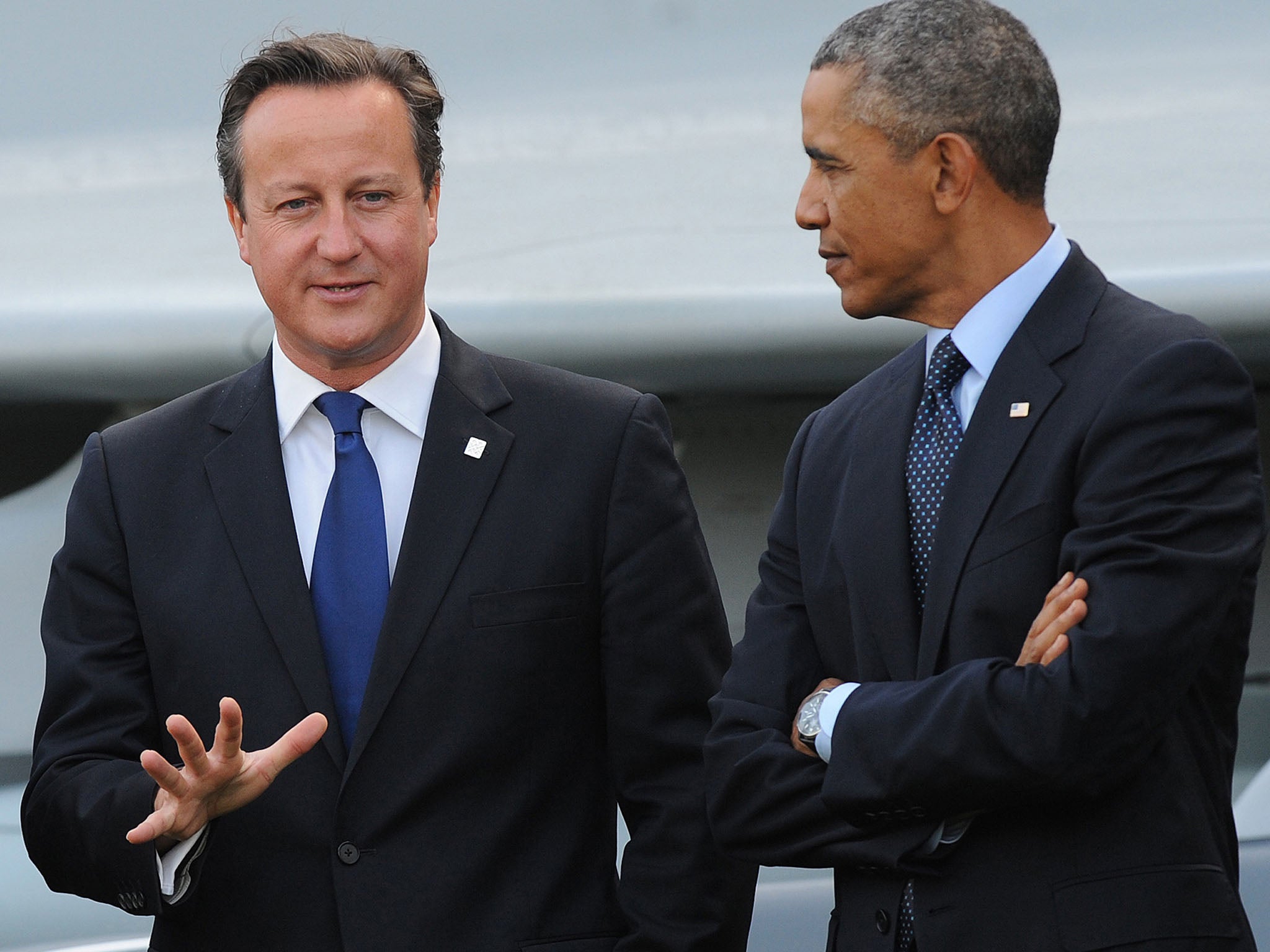Barack Obama is right to criticise David Cameron’s handling of Libya – but the US should not get off the hook
As with so many of the West’s wars in the Middle East, there was no serious post-conflict planning for Libya

“If you break it, you own it.” So said former Secretary of State Colin Powell, explaining why American troops remained in Iraq long after the 2003 invasion. Today, there can be no question that Libya is broken. There are three nominal governments, none of which holds much authority. The economy is flatlining. Refugees flood to the Mediterranean. And Isis has put down roots in Sirte and, increasingly, Tripoli.
But Western powers, whose 2011 intervention to depose Muammar Gaddafi was critical in reshaping the country, have turned their back on the consequences. President Barack Obama believes it is his European allies who “own” this mess, and signalled his discontent in an interview with The Atlantic. “I had more faith in the Europeans being invested in the follow-up,” he said. Mr Obama is right to issue the reprimand. David Cameron stood in front of a crowd in Benghazi in 2011 and said: “Your friends in Britain and France will stand with you as you build your democracy.” Such words have proven empty.
As with so many of the West’s wars in the Middle East, there was no serious post-conflict planning. The move to prevent Gaddafi from slaughtering the citizens of Benghazi remains, on balance, justifiable. Even Russia, no fan of revolutions in the Arab world, gave its approval via the UN Security Council. But the humanitarian concern of the first intervention is thoroughly undermined by the almost total disregard in the years that have followed. It is telling that the Western figures with the most influence in Libya these days are not world leaders or diplomats, but special forces that have begun carrying out raids against Isis.
In criticising Mr Cameron, however, Mr Obama rather ignores the stick in his own eye – or, at least, in the eye of his administration. The President no doubt rues being drawn out of his instinctive caution on deploying America’s military in the Middle East. He wants to go down in history as the man who withdrew the US from costly, failed wars – witness Iraq and Afghanistan – not one who brought more on to the ledger books. But the American footprint in Libya is larger than he would perhaps care to admit: America supplied drones, precision munitions and surveillance that the Europeans could not muster.
Perhaps a more appropriate target for Mr Obama’s displeasure would be Hillary Clinton, who was Secretary of State at the time. It was Ms Clinton who convinced the reluctant Mr Obama to engage. It was Ms Clinton who successfully pushed for the US to provide lethal assistance to the rebels – arms that have fuelled Libya’s civil war. If it had not been for Ms Clinton’s advocacy, there is a good chance America would have played no part in the war. She is a fine candidate for president. But the furore over her handling of the Benghazi embassy attack overlooks this rather more significant blot on her record. Ms Clinton’s similarly gung-ho policy on Syria deserves to be treated in the context of her misjudgement of the strength of the Libyan opposition, and its ability to evolve into a stable, liberal government.
It is in Western interests to focus on Libya once more. Sanctions should be placed on those politicians deemed to be obstructing the formation of a unity government, as France suggests. The most important first step is to end the fighting between the two main rival factions, the Islamists in Tripoli and the internationally recognised government in Benghazi, which is composed of many former Gaddafi loyalists. A broader campaign of air strikes against Isis is under consideration by the Pentagon. That would be unwise. It was foolish to think air strikes could solve Libya’s problems the first time around. It would be sadistic to make the same mistake again.
Join our commenting forum
Join thought-provoking conversations, follow other Independent readers and see their replies
Comments